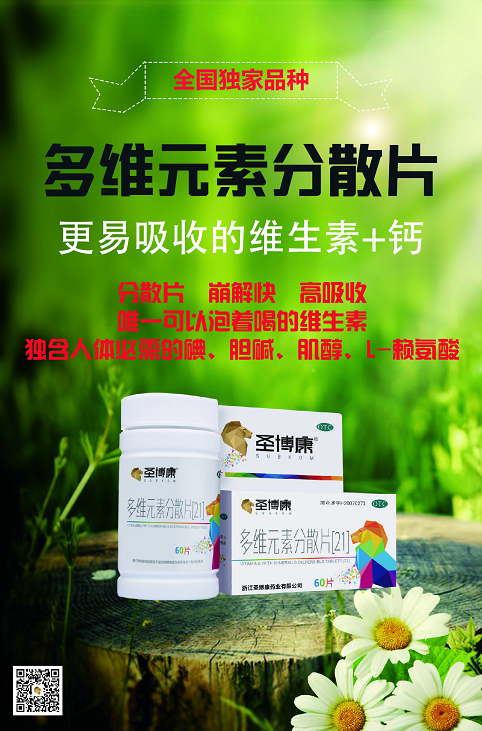

缺碘究竟有什么危险?中国人还该补碘吗?食用碘盐、碘摄用过量会导致甲状腺癌?近日,国家卫计委刊文对这些问题进行权威解答。What is the danger of iodine deficiency? Should Chinese people take iodine? Can edible iodized salt, iodine take overmuch cause thyroid cancer? Recently, the state health and Family Planning Commission published an authoritative answer to these questions.
Iodine deficiency in pregnant women may lead to fetal abortion, premature delivery, stillbirth and congenital malformation
Iodine is an essential micronutrient for metabolism, growth and development. It is the main raw material for human body to synthesize thyroid hormone.
The national health and Family Planning Commission reminds that the brain development of a child begins when the mother is pregnant. Fetal period and infant period (1-3 years old) are the key period of children's brain development. If children in the fetal and infant iodine deficiency, will affect the normal development of the brain, serious cause cretinism, deaf mute, intellectual damage. All the iodine needed by the fetus comes from the mother. Therefore, iodine deficiency of pregnant women will cause iodine deficiency of the fetus. If iodine deficiency is serious during pregnancy, abortion, premature birth, stillbirth and congenital malformation will occur.
Statistics show that the iodine demand of pregnant and lactating women is significantly more than that of the general population, and they need to supplement the right amount of iodine in time.
Iodine deficiency in adults may lead to hypothyroidism, fatigue, inattention and low work efficiency.
Iodine deficiency disorders (IDD) are a series of diseases caused by the lack of iodine in the external environment. The data show that before the elimination of IDD in 2000, 5-15% of the children in IDD areas had mild mental retardation, and 6.6 ‰ of them suffered from endemic cretinism, which seriously affected the quality of the local population.
In most areas of China, the external environment (water, soil, etc.) is almost iodine deficient, especially in mountainous areas, hills, river valleys, desertification areas and river erosion areas. It is difficult to change the status quo of iodine deficiency in the external environment. If iodine supplement is stopped, the iodine stored in the human body can last for up to three months, so we should insist on eating iodized salt for a long time.
Since 2000, the results of various surveillance or surveys (IDD surveillance, iodized salt surveillance, high water iodine area survey and high risk area survey) in China have shown that the iodine nutrition of the population is generally in the appropriate range.
Eat iodized salt, iodine intake increases to cause thyroid cancer? No evidence!
In recent years, there is a saying that the consumption of iodized salt or increased iodine intake will lead to thyroid cancer. According to the national health and Family Planning Commission, the incidence of thyroid cancer has increased in major countries in the world, no matter whether they take iodine supplement measures or not, and whether iodine intake increases, stabilizes or decreases, and the incidence of microcarcinoma less than 1.0 cm in diameter is mainly increasing. A considerable number of thyroid microcarcinomas have the characteristics of inert progression, low malignancy and good prognosis. Patients should follow the requirements of clinicians for correct treatment or follow-up observation.
Special population in need of iodine supplement
Pregnant women
In recent years, the monitoring results of Guangdong Province show that the urinary iodine level of pregnant women in the Pearl River Delta is generally between 100 and 150 μ g / L; the urinary iodine level of pregnant women in coastal areas and non iodized salt sterilization areas is generally less than 100 μ g / L; they are all lower than the minimum limit of 150 μ g / L recommended by who, so they are in the state of insufficient iodine intake.
In order to achieve a good iodine nutritional status, iodized salt should be used during pregnancy preparation. Pregnant women should take iodine rich seafood, such as kelp and laver, etc. the dietary guide for Chinese residents recommends that pregnant women take iodine rich seafood, such as kelp and laver, once or twice a week. Those with insufficient daily diet can take multi-dimensional element dispersible tablets (21), which can not only supplement iodine, but also supplement multiple vitamins at the same time.

Lactating women
Lactating women should continue to use iodized salt or iodized salt with high iodine content, and encourage the intake of iodized seafood, such as kelp and laver.
Infants and young children (from birth to 36 months old)
Infancy is the key period of growth and development. More thyroid hormones are needed to promote physical growth and nervous system development.
Breast fed infants, when the mother's iodine intake is sufficient, can meet the needs of 0 ~ 6 months old infants; 7 ~ 12 months old infants can get part of the iodine from complementary food; 13 ~ 24 months old infants start to try adult food, also will take a small amount of iodized salt, can get a certain amount of iodine.
The complementary food for infants should contain iodine rich seafood.
According to the national food safety standard of China (GB 10765-2010), it is necessary to add iodine in infant milk powder. The amount of iodine added is 2.5 ~ 14.0 μ g per 100kj or 10.5 ~ 58.6 μ g per 100kcal.
Children and adolescents
Children and adolescents are in a critical period of growth and development. Due to the rapid growth, the demand for iodine increases.
Therefore, children and adolescents should eat iodized salt.
The multi-dimensional element dispersible tablet (21) contains 12 essential vitamins, 8 minerals and 1 amino acid, such as vitamin A, D, e, C, inositol, iodine, copper and zinc, which can fully meet the daily vitamin and mineral needs. Dispersible tablets can be dissolved in water, juice, milk, etc. it is more easily absorbed and can enhance immunity if taken for a long time.
